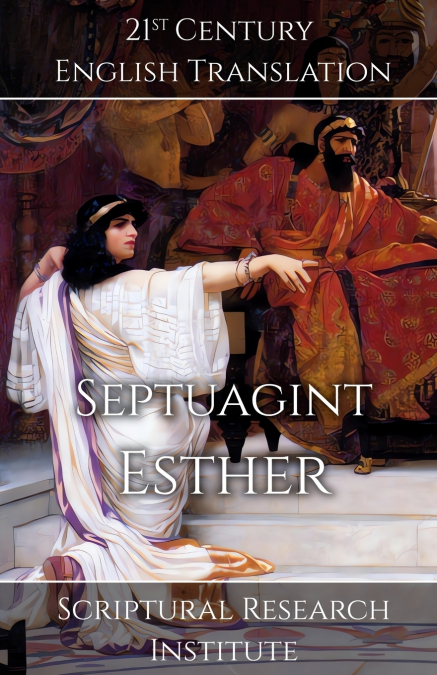
Scriptural Research Institute
There are two versions of the Book of Esther the various copies of the Septuagint, however, neither originated at the Library of Alexandria. The common version of Esther is found in almost all copies, while the rare version is only found in four know manuscripts, numbered as 19, 93, 108, and 319. This edition includes both the Septuagint’s versions, using the oldest surviving copies as source texts, the Codex Vaticanus, and Septuagint manuscript 319.In addition to the two copies of the Book of Esther found in the Septuagint manuscripts, there are two additional surviving copies of the Book of Esther, one is found in the Masoretic texts, while the other is found among the Vetus Latina manuscripts. The Masoretic texts are the Hebrew translations of the ancient Israelite and Judahite books that form the core of the modern Tanakh which is used by Rabbinical Jews, while the Vetus Latina manuscripts are the Latin translations of the ancient books that were made before Jerome’s official Latin translation of the Orthodox Christian Bible, published circa 405 AD. Each of these texts is unique, however, all appear to derive from earlier Aramaic texts.Nevertheless, the postscript specifically mentions the translation being made in Jerusalem, which therefore implies that Judea was under the rule of the Ptolemy and Cleopatra in question, or else there was no reason to have referenced them. The Greeks in Egypt were already using the Egyptian Civil calendar, with Greek names substituted for Egyptian, and that calendar would have been referenced if a Greek scholar in Egypt had added the note. In the Seleucid Empire, a modified version of the Macedonian calendar was in use, however, this is also not mentioned in the Vaticanus version. The only one of the couples named Ptolemy and Cleopatra who did rule Judea was Cleopatra I Syra of the Seleucid Empire and her husband Ptolemy V of Egypt, meaning the Vaticanus version of Esther was most likely translated in the year 181 BC.